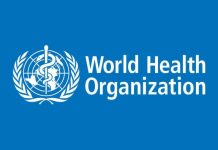A consummate pharmacist who had worked with some of the biggest names in the global pharmaceutical firmament before mounting the saddle of leadership as CEO of May & Baker, Pharm. Patrick Ajah dissipates an air of enthusiasm in his approach to duty. He is very passionate about innovation and growth. In this exclusive interview with Pharmanews, the University of Ibadan graduate of Pharmacy reveals how he is building on the solid foundations laid by his predecessors. He also calls on the Nigerian government to partner with the private sector in creating an enabling environment for research and development in the pharmaceutical industry. Excerpts:
Sir, what would you say is the most important factor that has kept May & Baker going all these years?
Commitment to quality has been very significant in whatever May & Baker has been able to achieve till now. We all know that May & Baker is essentially the first pharmaceutical company with a very long heritage.
Of course, among many of these companies, you will find that May & Baker has never changed in quality and presence in the market. And I think that all this has been due to our stickling for the same quality that May & Baker has always been known for, through the years; and I am glad to say that, even after 75 years, we can still beat our chest that our commitment to quality has remained consistent and the same with what obtained even when it was being managed by expatriates or had affiliations with the UK and all that. Our hallmark has been quality and adhering to the GMP standard.
How well do you think the original vision of the founders of May & Baker has been nurtured so far?
I think very well, to a large extent. Usually, people have this fear when management moves from expatriates to Nigerians, or when a multinational is being managed by locals. People may think that quality could be compromised. As justifiable as this fear may appear, I can assure you that May & Baker has continued to sustain that culture of excellence which guided the activities of its founders and we hope to break new grounds and ensure that the depreciation of quality never happens.
I must say that the founders will not be disappointed with where we are. Though there are improvements that need to be made but in rating ourselves, I think we have done very well.
What are your plans to positively create better outcomes for the May & Baker brand?
I must say, at this point, that my predecessors have done a fantastic job. Like I said, since this company fell into the management of Nigerians, being quoted in the Stock Exchange, I must say that they did a good job in laying a solid foundation.
My intention is to build on that solid foundation. And building on that solid foundation means maintaining the same standards of quality; the same standards that allowed us to be WHO-prequalified.
And my predecessors also crafted a new vision. There was a change of vision to reflect exactly where we are going and that vision is to be a leading healthcare brand in sub-Saharan Africa. So when I look at that, I see that there are challenges ahead which obviously are tasks to be accomplished. One of those challenges is, beyond just being a strong player like we have been in the Nigerian space, we need to extend our footprints to other parts of Africa.
When we are talking of being a leading healthcare brand in sub-Saharan Africa, it means beyond Nigeria. And my commitment in this business – apart from improving our shares in the country and improving returns on investment for our stakeholders – is to make sure that we extend our footprints to other parts of Africa. Yes of course, it is a huge task; it is something we are poised to achieve.
Do you think the COVID era has had a negative effect on the pharmaceutical industry, bearing in mind the fact that the industry should be involved in so many researches aimed at finding a cure or vaccine for the virus?
Well I would say “yes” and “no”. Yes, in the sense that we will be fooling ourselves if we pretend that the COVID-19 pandemic has not impacted on the industry, even when you factor in the lockdown.
No matter how good your products are; no matter how good your business is, if you are shut down, you are shut down. And of course, our business depends on reaching out to people and providing what people need. If people are not working or moving, it would affect us. So, globally, I think the pharmaceutical industry was impacted like every other industry.
No, in the sense that, I actually think that this has revealed the value of the pharmaceutical industry. The tendency, sometimes, before we had situations like this, is to think that innovation doesn’t matter and that research and development is a waste of money and all of that; but COVID has shown us that these are the core principles of the pharmaceutical industry – which are, finding new molecules and addressing new challenges.
For some years, it looked as if this area had been downplayed because people keep bringing all manner of things from all over the place but the COVID-19 pandemic has shown the value in companies, especially pharmaceutical companies and alliances investing in R&D (Research and Development).
NAFDAC has said it would leave no stone unturned in ensuring that pharmaceutical manufacturers abide by its GMP guidelines. What are your sincere thoughts on this?
That’s a good thing. I have been in the pharmaceutical industry for a long time. We have also had situations where substandard products were flying into the country from all over the place. If NAFDAC is not doing what they are doing, things would have gone worse.
Much of the problem we had with chloroquine was because of substandard products from all over the place, leading to tolerance and resistance. I am also saying that, as much as we expect NAFDAC to regulate us and ensure that we meet the GMP standards, I also want the same thing to be extended to products that are imported from outside the country.
You are barely three months on the saddle of leadership here. What do we expect you to do better and differently towards sustaining that culture of excellence that May & Baker is known for?
Technically, I am in my third month on the job but in my second month as the CEO. I did mention earlier that my predecessors did a good job by laying a solid foundation. I would not forget how important that is because, if they had not laid that solid foundation, I might not be able to do some of those things that I plan to do. And some of the things I plan to do are: to trigger both vertical and horizontal kinds of growth. As the first pharmaceutical company, you deserve to be the best, if you know what you are doing. And I think that where we are is very good but we could be better.
I also intend to grow the current products we have. As I grow these products vertically, I also want to expand our business horizontally. And that means introducing new molecules. Like I already said, the value of the pharmaceutical industry is identifying needs and filling in those needs. We need new molecules and alliances in our space. I want us to be able to invest in research and innovation. That’s the only thing that would differentiate us.
How do you think the pharmaceutical landscape in Nigeria can be better galvanised for phenomenal advancements in research, drug manufacturing and marketing?
I remember a few years ago when Ebola entered into Nigeria. That was the first time Nigerians began to see the need to practice social distancing, wash our hands and use sanitizers. May & Baker was one of the first companies locally to rise to the challenge. Our sanitizer was developed in that era of Ebola and the country benefitted from it.
But again, most of these companies, like us, are private companies who want returns on investment and, so, sometimes it becomes a challenge to invest long-term on things like research which do not generate profit immediately. I think the government needs to play a part. The government needs to partner with the private sector in encouraging research.
The government needs to invest in research institutes. Pfizer spends 8 billion dollars on research and development and this got me wondering some years ago during a meeting in New York. But today, I have come to see the impact. Pfizer was the first to rise to the challenge with the development of a vaccine for COVID-19 using Moderna.
Your advice to the Nigerian government on how to harness the local potentials for the production of a cure or vaccine for COVID-19, bearing in mind the fact that we are blessed with excellent flora and fauna?
Twenty to thirty years ago, if you wanted to do any research in agriculture, IITA Ibadan was the one place that people from all over the country came to. Why can’t government replicate that kind of a thing? Although government has some institutions scattered all over the country but they are not funded. I really think that government needs to sit back now and begin to look at all those research centres and invest in them.
Most of our universities don’t have reagents. I am calling on government to address these issues because we don’t know what is coming after COVID-19. We import almost all the raw materials we need for manufacturing from countries we were far better than 40 years ago. Can you imagine?
We need a forward-looking private sector partnering with government to make sure that things happen.











tadalafil tablets: http://tadalafilonline20.com/ tadalafil 40 mg daily